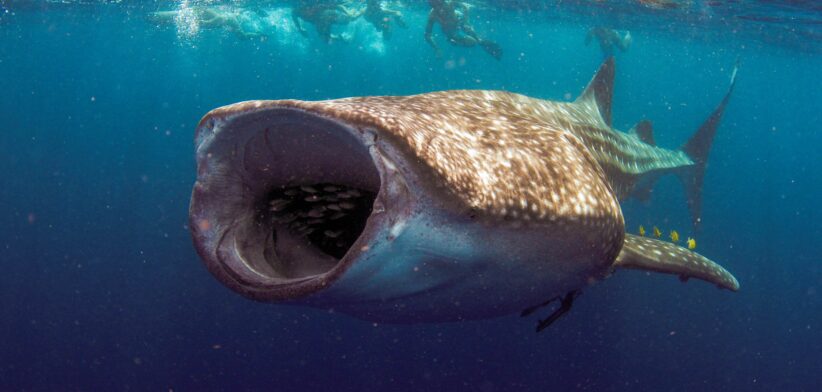Whale sharks and commercial shipping are on a climate change-induced collision course.
New research out of Western Australian, where the iconic marine animal is a major tourist attraction, found that by the end of the century, whale sharks and ships could be thousands of times more likely to collide.
Study co-author from the University of Western Australia’s Ocean Institute Associate Professor Ana Sequeira said under a high-emissions scenario, whale sharks could be forced to move into cooler environments, making it 15,000 times more likely to collide with ships.
“Whale sharks are highly mobile marine megafauna that can travel hundreds or thousands of kilometres annually,” Associate Professor Sequeira said.
“The species are already vulnerable to collisions with ships due to their use of surface water and the high level of habitat overlap with marine traffic.”
The study found moving to cooler regions may protect whale sharks from climate change, but could also expose them to risks such as fishing exploitation, increased danger from predators and collisions with ships.
In the study researchers used global climate models and satellite-tracking data of 348 tagged whale sharks from 2005 to 2019 and combined it with shipping traffic models and habitat suitability estimates to predict the risk of interaction.
Read the full study: Climate-driven global redistribution of an ocean giant predicts increased threat from shipping.








